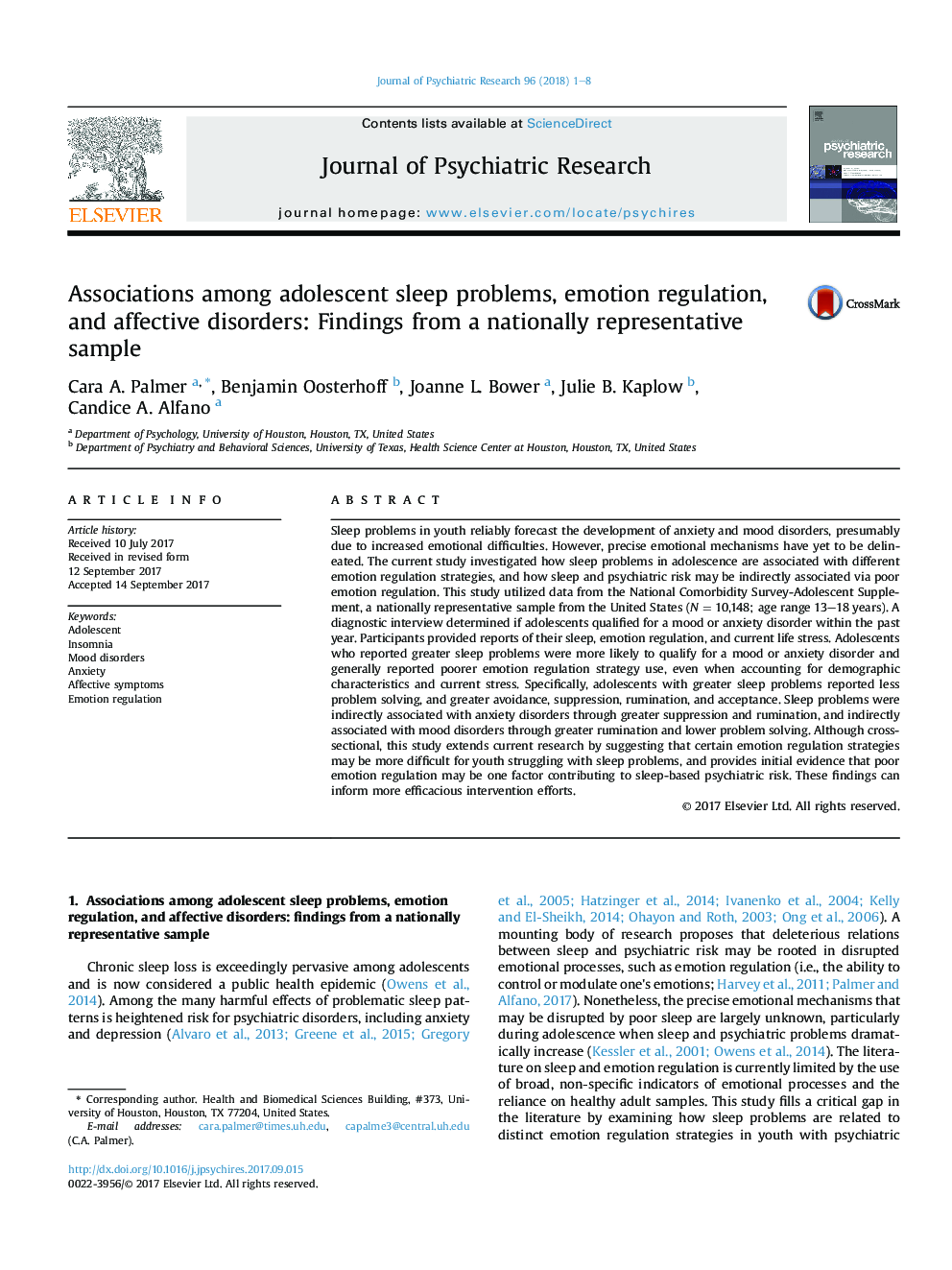| کد مقاله | کد نشریه | سال انتشار | مقاله انگلیسی | نسخه تمام متن |
|---|---|---|---|---|
| 4931889 | 1433297 | 2018 | 8 صفحه PDF | دانلود رایگان |
- Adolescents with sleep problems were more likely to qualify for a mood or anxiety disorder.
- Greater sleep problems were associated with more problematic emotion regulation.
- Poor sleep was indirectly associated with mood and anxiety disorders via poor emotion regulation strategy use.
Sleep problems in youth reliably forecast the development of anxiety and mood disorders, presumably due to increased emotional difficulties. However, precise emotional mechanisms have yet to be delineated. The current study investigated how sleep problems in adolescence are associated with different emotion regulation strategies, and how sleep and psychiatric risk may be indirectly associated via poor emotion regulation. This study utilized data from the National Comorbidity Survey-Adolescent Supplement, a nationally representative sample from the United States (NÂ =Â 10,148; age range 13-18 years). A diagnostic interview determined if adolescents qualified for a mood or anxiety disorder within the past year. Participants provided reports of their sleep, emotion regulation, and current life stress. Adolescents who reported greater sleep problems were more likely to qualify for a mood or anxiety disorder and generally reported poorer emotion regulation strategy use, even when accounting for demographic characteristics and current stress. Specifically, adolescents with greater sleep problems reported less problem solving, and greater avoidance, suppression, rumination, and acceptance. Sleep problems were indirectly associated with anxiety disorders through greater suppression and rumination, and indirectly associated with mood disorders through greater rumination and lower problem solving. Although cross-sectional, this study extends current research by suggesting that certain emotion regulation strategies may be more difficult for youth struggling with sleep problems, and provides initial evidence that poor emotion regulation may be one factor contributing to sleep-based psychiatric risk. These findings can inform more efficacious intervention efforts.
Journal: Journal of Psychiatric Research - Volume 96, January 2018, Pages 1-8
